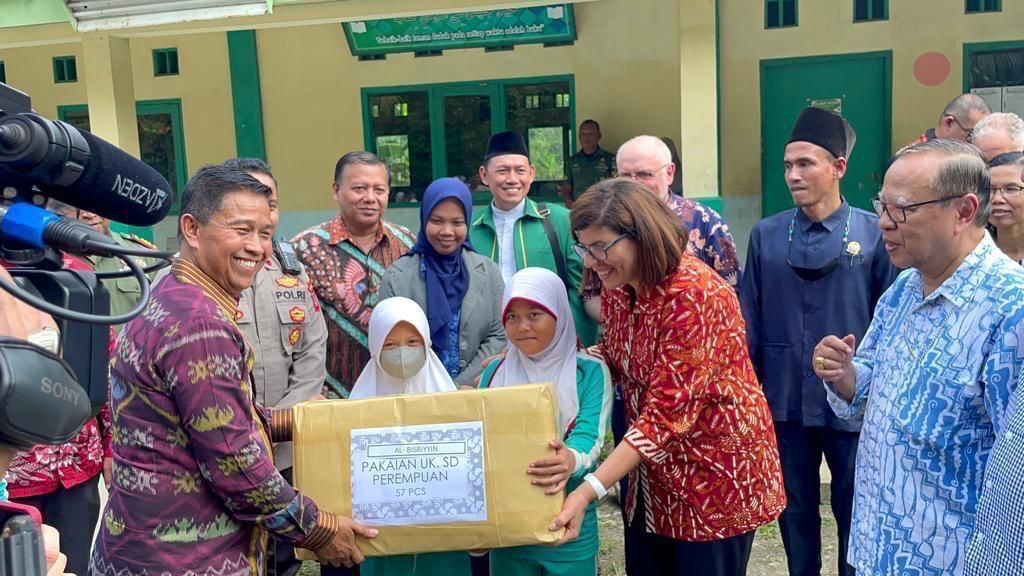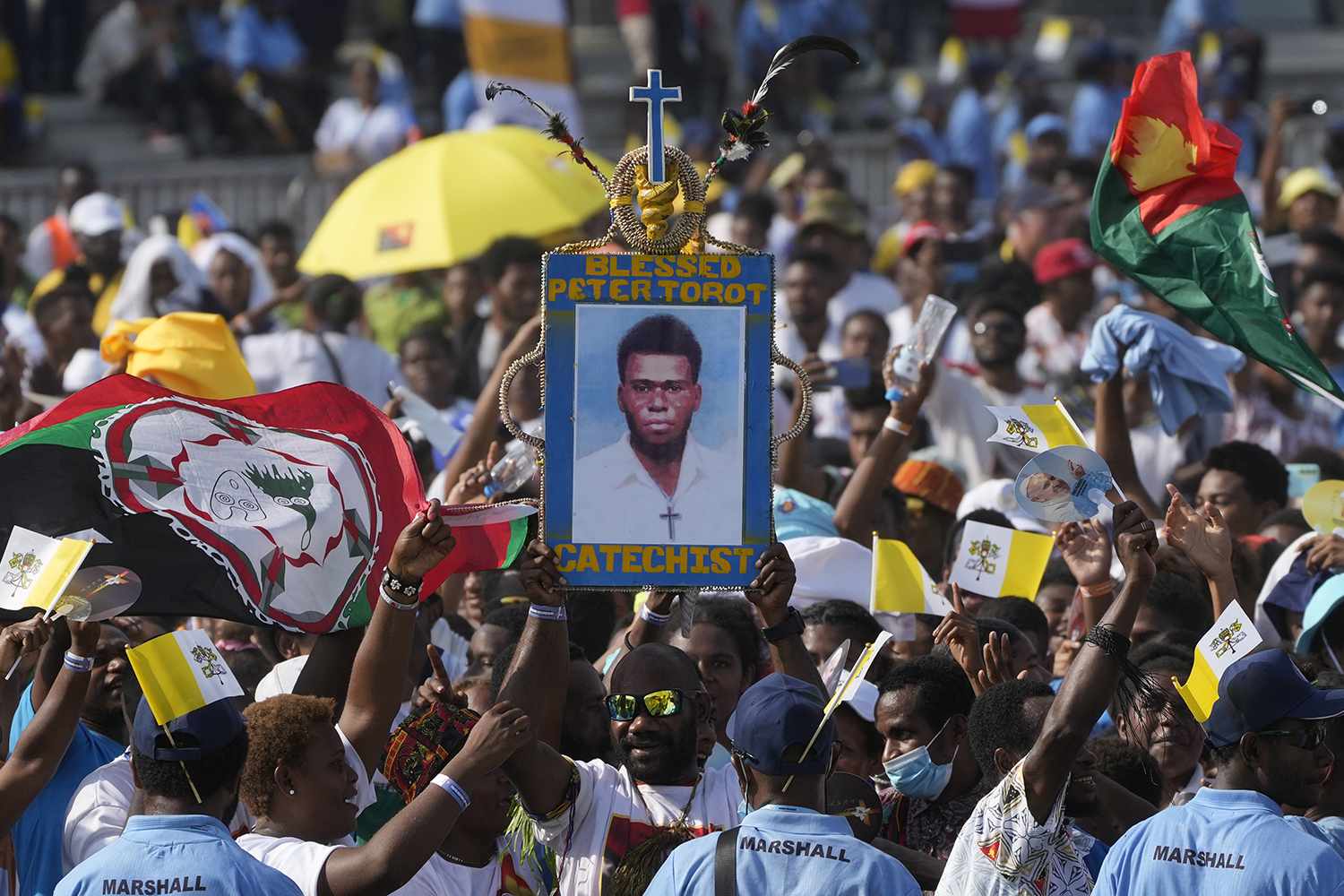Advocating a more united and tolerant world
Joaquim Magalhães de Castro
In recent weeks, Margaret Karram and Jesús Morán, president and co-president, respectively, of the Focolare Movement, made their first official trip to Asia and Oceania. After brief visits to Korea, Japan, the Fiji Islands and Australia, they concluded their Asian tour in Indonesia with a visit to the Catholic parish of Santa Odilia in Tangerang.
This meeting was attended by the Archbishop of Jakarta, Mons. Ignatius Suharyo, government and law enforcement representatives, various members of civil society, and Muslim, Buddhist, and Hindu religious leaders. “The dialogue we have here with our brothers of different religions is real,” explained Bishop Suharyo,“and it focuses on people’s needs: the need for housing, the opportunity to obtain decent work, the right to basic sanitation, etc. That’s why we work together. My country’s motto, ‘Unity in Diversity,’ fully expresses who we are and how we face our daily challenges.”
For her part, Margaret Karram evoked the spiritual richness of the Asian peoples, “a gift to humanity,” and recalled that she was there to listen, to know, to learn, but above all to love what she called the “continent of hope.”
“It is extremely important to revive the path of dialogue within the Movement, an instrument par excellence for building peace, the good that the world needs most today,” said Margaret Karram, thus justifying her presence in those parts.
The Indonesian motto “Unity in Diversity” well expresses the great ethnic-linguistic variety of what is, with its 17,508 islands, the largest archipelago-state in the world. It is currently Yogyakarta, an important city on the island of Java and the cultural capital of the country, which is the base of operations of the Focolare Movement in the archipelago.
The Movement has contributed to the good performance of the pastoral work of the local Church, organizing meetings for religious and young people and promoting a school for catechists. It also organizes sporting and recreational events and interfaith festivals, thus maintaining close relationships with Muslim youth associations.
In Java, the Focolare Movement contributed to the resurgence of several villages, helping to rebuild countless homes, both Christian and Muslim, in the aftermath of the 2004 earthquake. In Greater Malaya, which includes Indonesia, Singapore and Malaysia, Christians (of various denominations) make up less than 10% of the population. This entire region is, as is known, predominantly Muslim (in the case of Indonesia and Malaysia) or Taoist/Buddhist (in the case of Singapore). Nevertheless, here the seeds of Focolare spirituality have been spread since the 1960s, via priests or lay people, but also through texts published in the New City newspaper or in the Word of Life pamphlet.
In 1991, two centers of the Focolare Movement were founded in Singapore (now transferred to Yogyakarta) and, in 2004, in the city of Medan, on the island of Sumatra. In the late 1980s, the Movement also spread to Malaysia, where it now has several members in different parts of the country. These communities are small but very active.
The Focolare Movement, an initiative for spiritual and social renewal, was founded in Trento, Italy, in 1943, during the Second World War. Its aim is to gather humanity into a “great and varied family,” a “new people born of the Gospel” in the happy expression of Chiara Lubich, the founder. Officially known as the Work of Mary, the Focolare Movement would be sanctioned by the Catholic Church in 1962. Today it is present in 182 nations with over 2 million people participating in it.
Inspired by Jesus’ prayer to the Father: “May they all be one” (John 17:21), its aim is to promote fraternity and fight for a more united world, in which people respect and value diversity. In order to achieve this objective, it is necessary to opt for dialogue in all situations and strive to build “bridges of fraternal relationships between people and in all areas of society.”
Members of the Focolare Movement include Christians of different denominations and ecclesial communities, members of other religions or even agnostics. Each adheres to the aim and spirit of the Movement while faithfully following the precepts of their own faith or conscience. At the heart of the Movement, it is true, we find small communities of men and women who consecrate their lives to God, professing vows of poverty, chastity and obedience and living in specific houses called “focolare” (from the Italian word for “home”). There are also married people among the members of these communities, although these do not fail do fulfill their marital and family commitments.


 Follow
Follow


